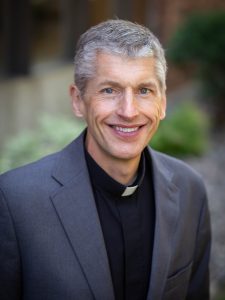 By Pastor Craig Pederson
By Pastor Craig Pederson
One of the gifts of Christian liturgies is that they incorporate words and phrases we are not likely to hear in everyday conversation. This week in the liturgical year, Ash Wednesday provides us one of those phrases that always sinks in deeply with me:
“Remember that you are dust, and to dust you shall return.”
In contemporary language, dust is not often assigned to the human condition (though, depending upon your lexicon of insults, maybe you’ve been on the giving or receiving end of a closely related ‘d’ word – “dirtball!”).
“We are reminded of this elemental life cycle at the graveside committal when we lay to rest our loved ones: ‘Earth to earth, ashes to ashes, dust to dust.’”
But the human relationship to dust and ashes is biblical. God created humans by breathing life into dust (Gen. 2:7), then sentenced us back to that same dust following the disobedience of Adam in the garden (Gen. 3:19). We are reminded of this elemental life cycle at the graveside committal when we lay to rest our loved ones: “Earth to earth, ashes to ashes, dust to dust.”
Ash Wednesday is a vital, necessary reality check for me. Sometimes that is because I need a reset in remembering my existential relationship to God. Sometimes I need a reminder of the universal chemical, material, elemental relationship of all things. Sometimes I need a healthy serving of humble pie. And, sometimes I need encouragement that the division, and stratification, and marginalization we humans tend to create are not the original designs of God.
YET IF ALL LIFE ends in dust, this existence is a tough one to take. Ash Wednesday is an affirmation of the resurrection hope that the Lenten journey initiates. For me, I’m invited to think about encounters with ashes that have been formative in my life.
I think about the ashes from the oven fire in my family’s kitchen when I was in elementary school, one that I thought would render us homeless – but thank God for the volunteer small-town fire department who responded within minutes.
I think about the charred remains of a barn fire at my friend’s farm that left them asking, “What now?”
I think about arriving at the scene of the devasting fire of the original Our Saviour’s Lutheran Church building on 24th Street and Chicago Avenue in Minneapolis while I was in seminary.
I think about visiting New York City just a few months after 9/11 and seeing, smelling, and feeling the ash-tinged effects of that terrorist act.
I think about a spring break family trip to southern California a few years ago where we observed ashen hillsides following a series of wildfires that dramatically altered the landscape and portended the effects of climate change.
And, more recently, I think about the images of bombed out structures where buildings once stood in Ukrainian cities where the Russian war is now one year old; I think about the ashes produced by the catastrophic earthquake in Turkey.
Ashes are often the residual effects of destruction and death. But as people of God in Christ, we look beyond the residual for what may come next, trusting that God is at work in the dusty and dry places.
IN A RECENT article on the possibility of revival in the Christian church, pastor and theologian Tim Keller describes where he sees signs of hope. In 1989 he founded Redeemer Presbyterian Church in Manhattan, a context where most residents are skeptical, hostile, or indifferent towards Christianity. Added to that challenging context is his personal story of being a remarkable survivor of a pancreatic cancer diagnosis.
Keller names several pivots that would need to happen for Christianity to grow again in the United States:
- Developing new language to communicate with non-Christians;
- Uniting justice and righteousness;
- Embracing the multiethnic character of the faith;
- Striking a balance between innovation and conservation;
- Reclaiming the Christian virtues of grace and covenant.
These pivots are difficult when the church spends time and energy striving to be an equal cultural force in a competitive world, and when it struggles to differentiate its values and practices from other institutions.
“Ashes are often the residual effects of destruction and death. But as people of God in Christ, we look beyond the residual for what may come next, trusting that God is at work in the dusty and dry places.”
But then Keller said this: “Christianity, like its founder, does not go from strength to strength but from death to resurrection.”
This is the message I will carry into this Lenten season. The pursuit of perpetual growth and strength is admirable and impressive, but that is not always the way of a God who created us from dust and ensures our return there. Lent is a time to repent, to turn back toward the God who promises to bring new life out of dust and ashes – sometimes through devoted volunteer firefighters, sometimes through neighbors helping neighbors, sometimes through new flowers on ashen hillsides, and sometimes through peacemaking and mercy in the midst of catastrophe.
Remember that you are dust, and to dust you shall return. But you are not alone, for God and neighbor are with you.
